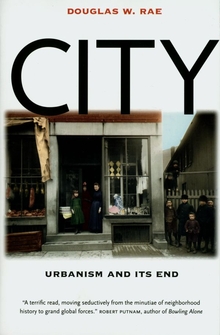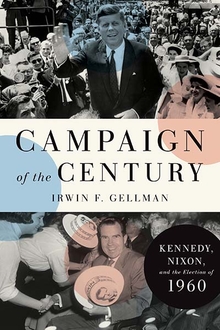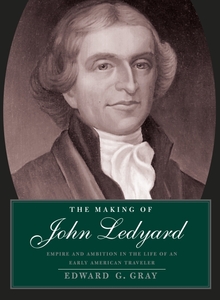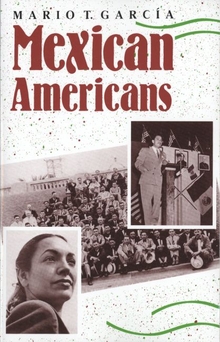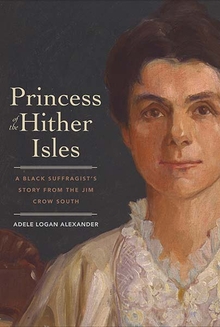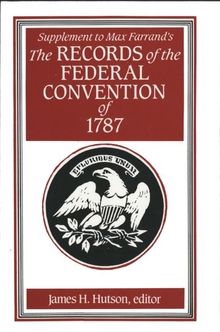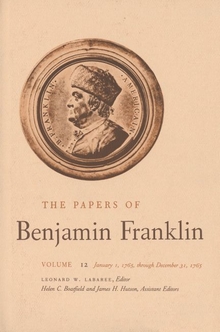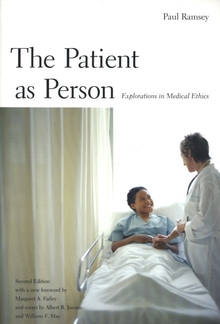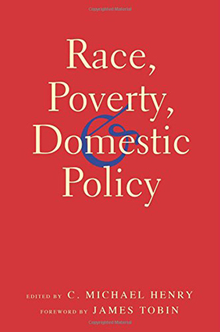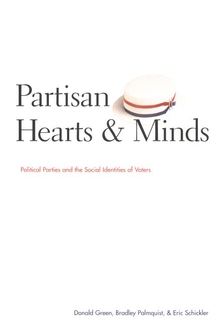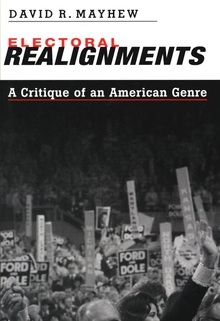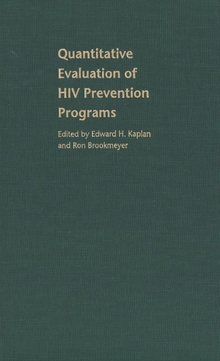City
WARNING
You are viewing an older version of the Yalebooks website. Please visit out new website with more updated information and a better user experience: https://www.yalebooks.com
Urbanism and Its End
Douglas W. Rae
A new understanding of the modern city, its challenges, and why old ideas about urban renewal won’t work
How did neighborhood groceries, parish halls, factories, and even saloons contribute more to urban vitality than did the fiscal might of postwar urban renewal? With a novelist’s eye for telling detail, Douglas Rae depicts the features that contributed most to city life in the early “urbanist” decades of the twentieth century. Rae’s subject is New Haven, Connecticut, but the lessons he draws apply to many American cities. City: Urbanism and Its End beginswith a richly textured portrait of New Haven in the early twentieth century, a period of centralized manufacturing, civic vitality, and mixed-use neighborhoods. As social and economic conditions changed, the city confronted its end of urbanism first during the Depression, and then very aggressively during the mayoral reign of Richard C. Lee (1954–70), when New Haven led the nation in urban renewal spending. But government spending has repeatedly failed to restore urban vitality. Rae argues that strategies for the urban future should focus on nurturing the unplanned civic engagements that make mixed-use city life so appealing and so civilized. Cities need not reach their old peaks of population, or look like thriving suburbs, to be once again splendid places for human beings to live and work.
Douglas W. Rae is Richard Ely Professor of Management and professor of political science at Yale University. In 1990–91 he served as chief administrative officer of the city of New Haven under John Daniels, the city’s first African-American mayor. Currently, he teaches politics to MBA students at the Yale School of Management, and urban studies in Yale College.
“An extraordinary assessment of the birth and death of urbanism and its effects on New Haven’s past, present, and future. It is a great book, the happy marriage of an astute, scholarly synthesis and an accessible walking tour of the city.”—Alan Schoenfeld, The Next American City
“Rae makes a major contribution with this book. I know of no other work that weaves so much detail with so much sophistication about what the detail means. I plan to recommend this book to everyone interested in cities that I know.”—Gerald E. Frug, Harvard Law School and author of City Making: Building Communities without Building Walls
“Douglas Rae’s City: Urbanism and Its End is exceptionally well-written, fascinating in its rich historical detail, and a pleasure to read. This book is indispensable for those seeking to understand the tragic destiny of America’s cities. As a work of social history it is quite an achievement.”—James Howard Kunstler, author of The Geography of Nowhere and other books
"At last we have an answer to Who Governs? with the same intellectual heft. City could singlehandedly revive the study of urban politics and the analysis of power in American society, with insights on history, race, capitalism, and policy problems thrown in for good measure."—Jennifer Hochschild, author of Facing up to the American Dream: Race, Class, and the Soul of the Nation
“Gracefully written and displaying an astonishing array of information from obscure if not fugitive sources, this book is a major statement about urban life at the turn of the century.”—Raymond Wolfinger, University of California, Berkeley
“It sets a new standard for the study of the city in the context of its broader significance—a standard, I’d predict, that few others will be able to measure up to.”—Robert Dahl, author of Who Governs? and How Democratic Is the American Constitution?
"This is a capacious book, stretching from railway networks to society weddings to grocery stories to racial politics. It has a big argument—that urbanism is moribund, beyond the power of politicians to resurrect. And it is a terrific read, moving seductively from the minutiae of neighborhood history to grand global forces. It is, quite simply, one of the best books I’ve read in years."—Robert Putnam, Harvard University, and author of Bowling Alone
"A detailed portrait."—Chicago Tribune
“[A] masterful book. . . . Its love of urbanism, multidisciplinary approach, and innovative empirical techniques strongly recommend it for courses in urban sociology and related fields.”—City and Community: Journal of the American Sociological Association
"An extraordinary book that traces the rise and decline of urbanism in New Haven. . . . Rae shows with great precision how large historical processes such as capitalism and technological innovation worked out in everyday life. . . . This book is essential reading for anyone who cares about the future of cities." —Michael Willrich, Connecticut History
"Douglas W. Rae has combined his experience in city government and academia to produce a wonderful book. . . . The thought-provoking and beautifully written volume will make readers think about the cities they have grown up in or visited. . . . Anyone who cares about the future of urban areas—and urban life—will find City to be a fascinating read."—Joe Meyers, Connecticut Post
“Political scientist Douglas Rae’s City is a perceptive examination of traditional American urbanism grounded in lively streets, mixed uses, and a place-based commingling of citizenry different in race, ethnicity, and class.”—David Seamon, Environmental & Architectural Phenomenology
“Rae emits ideas the way a lamp emits light. . . . Impressive.”—Mike Swift, Hartford Courant
"This is one of the best ’city’ books yet seen."—Tom Condon, Hartford Courant
"[An] energetic study. . . . Amply documented with references, charts, and graphs and animated with captivating anecdotes and photographs, this accomplished study is an important addition to regional libraries and urban studies collections. All academic and public libraries should also consider purchase."—Library Journal
"[Rae] has provided the blueprint for the next generation of thinkers and city dwellers who debate the future of urban America. City: Urbanism and Its End . . . is a tour de force of research. . . . The latest and most definitive in a line of books studying urban America through New Haven’s lens. . . . A gem of creative research and intellectual honesty."—Paul Bass, New Haven Advocate
“Rae does a superb job of tracing the factors that led people, businesses, and institutions to disperse in the 20th-century U.S.”—Philip Langdon, New Urban News
“The book is an extraordinarily detailed study of New Haven, tracing the city’s rise in the early part of the 20th century and its fall in the second half—an almost archetypal tale of the American city.”—Edward Rothstein, New York Times
“For anyone with the slightest interest in cities, this book is that rare combination: a must-read volume that you can’t put down.”—Planning Magazine
"An erudite, thoughtful, and sophisticated account. . . . Rae makes extensive and clever use of a variety of statistics, maps, and photographs; intertwined intimately with terrific prose, they make urbanism and its end visible and real. This is an important book in American urban history. It should be read by anyone who cares about cities."—Richard Fusch, The Historian
“City is a wonderful book for the classroom. It is chock full of informative detail, and it makes large and arresting arguments. . . . A landmark study.”—Clarence N. Stone, Urban Affairs Review
“A superb book for classroom use. . . . The volume’s pedagogic value stems not only from thought—and discussion-provoking content . . . but also from its unusually well-rendered, multimethod, and multidisciplinary research. . . . City stimulates, educates, and elucidates. It’s a gem for students and professors alike.”—Kathryn Foster, Urban Affairs Review
“Douglas Rae has written a rare thing—a fascinating, highly detailed historical geography of New Haven, Connecticut, that is at the same time an original statement of urban theory with universal applicablity. . . . Rae’s major contribution here is to clearly articulate a distinct theory of urbanism (and its end) that, because it provides a link between geographical processes of urbanization and a distinct urban culture, adds further theoretical insight into the ‘urban question’. . . . Rae has made an important contribution to both urban geography and theory with this book.”—R. Alan Walks, Urban Affairs Review
“This [is an] incredibly detailed, beautifully written study of civil society and politics in New Haven, Connecticut. . . . Rae’s book is by far, the best scholarly description of these profound changes in civil society. It is up to other scholars to take his remarkable collection of facts and insights about trends in civil society and continue the debate about both their causes and their effects.”—Todd Swanstrom, Urban Affairs Review
“In the spirit of Jane Jacobs’s influential Death and Life of Great American Cities . . . this is a fascinating book for anyone who cares about urban life—in New Haven or any other old American city—and who wants to understand the forces that have shaped, and continue to shape, those cities.”—Judy Ashkenaz, Yankee Magazine
Publication Date: March 11, 2005

